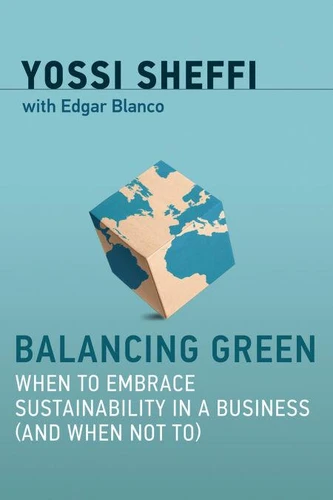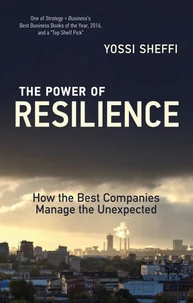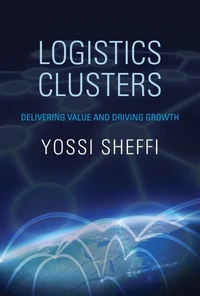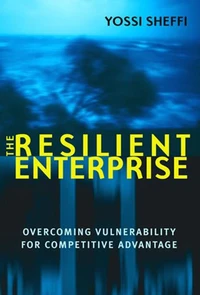Balancing Green. When to Embrace Sustainability in a Business (and When Not To)
Par : ,Formats :
Disponible dans votre compte client Decitre ou Furet du Nord dès validation de votre commande. Le format ePub protégé est :
- Compatible avec une lecture sur My Vivlio (smartphone, tablette, ordinateur)
- Compatible avec une lecture sur liseuses Vivlio
- Pour les liseuses autres que Vivlio, vous devez utiliser le logiciel Adobe Digital Edition. Non compatible avec la lecture sur les liseuses Kindle, Remarkable et Sony
- Non compatible avec un achat hors France métropolitaine
 , qui est-ce ?
, qui est-ce ?Notre partenaire de plateforme de lecture numérique où vous retrouverez l'ensemble de vos ebooks gratuitement
Pour en savoir plus sur nos ebooks, consultez notre aide en ligne ici
- Nombre de pages568
- FormatePub
- ISBN978-0-262-34576-7
- EAN9780262345767
- Date de parution30/03/2018
- Protection num.Adobe DRM
- Taille2 Mo
- Infos supplémentairesepub
- ÉditeurThe MIT Press
Résumé
An expert on business strategy offers a pragmatic take on how businesses of all sizes balance the competing demands of profitability and employment with sustainability. The demands and stresses on companies only grow as executives face a multitude of competing business goals. Their stakeholders are interested in corporate profits, jobs, business growth, and environmental sustainability. In this book, business strategy expert Yossi Sheffi offers a pragmatic take on how businesses of all sizes-from Coca Cola and Siemens to Dr.
Bronner's Magical Soaps and Patagonia-navigate these competing goals. Drawing on extensive interviews with more than 250 executives, Sheffi examines the challenges, solutions, and implications of balancing traditional business goals with sustainability. Sheffi, author of the widely read The Resilient Enterprise, argues that business executives' personal opinions on environmental sustainability are irrelevant.
The business merits of environmental sustainability are based on the fact that even the most ardent climate change skeptics in the C-suite face natural resource costs, public relations problems, regulatory burdens, and a green consumer segment. Sheffi presents three basic business rationales for corporate sustainability efforts: cutting costs, reducing risk, and achieving growth. For companies, sustainability is not a simple case of "profits versus planet" but is instead a more subtle issue of (some) people versus (other) people-those looking for jobs and inexpensive goods versus others who seek a pristine environment.
This book aims to help companies satisfy these conflicting motivations for both economic growth and environmental sustainability.
Bronner's Magical Soaps and Patagonia-navigate these competing goals. Drawing on extensive interviews with more than 250 executives, Sheffi examines the challenges, solutions, and implications of balancing traditional business goals with sustainability. Sheffi, author of the widely read The Resilient Enterprise, argues that business executives' personal opinions on environmental sustainability are irrelevant.
The business merits of environmental sustainability are based on the fact that even the most ardent climate change skeptics in the C-suite face natural resource costs, public relations problems, regulatory burdens, and a green consumer segment. Sheffi presents three basic business rationales for corporate sustainability efforts: cutting costs, reducing risk, and achieving growth. For companies, sustainability is not a simple case of "profits versus planet" but is instead a more subtle issue of (some) people versus (other) people-those looking for jobs and inexpensive goods versus others who seek a pristine environment.
This book aims to help companies satisfy these conflicting motivations for both economic growth and environmental sustainability.
An expert on business strategy offers a pragmatic take on how businesses of all sizes balance the competing demands of profitability and employment with sustainability. The demands and stresses on companies only grow as executives face a multitude of competing business goals. Their stakeholders are interested in corporate profits, jobs, business growth, and environmental sustainability. In this book, business strategy expert Yossi Sheffi offers a pragmatic take on how businesses of all sizes-from Coca Cola and Siemens to Dr.
Bronner's Magical Soaps and Patagonia-navigate these competing goals. Drawing on extensive interviews with more than 250 executives, Sheffi examines the challenges, solutions, and implications of balancing traditional business goals with sustainability. Sheffi, author of the widely read The Resilient Enterprise, argues that business executives' personal opinions on environmental sustainability are irrelevant.
The business merits of environmental sustainability are based on the fact that even the most ardent climate change skeptics in the C-suite face natural resource costs, public relations problems, regulatory burdens, and a green consumer segment. Sheffi presents three basic business rationales for corporate sustainability efforts: cutting costs, reducing risk, and achieving growth. For companies, sustainability is not a simple case of "profits versus planet" but is instead a more subtle issue of (some) people versus (other) people-those looking for jobs and inexpensive goods versus others who seek a pristine environment.
This book aims to help companies satisfy these conflicting motivations for both economic growth and environmental sustainability.
Bronner's Magical Soaps and Patagonia-navigate these competing goals. Drawing on extensive interviews with more than 250 executives, Sheffi examines the challenges, solutions, and implications of balancing traditional business goals with sustainability. Sheffi, author of the widely read The Resilient Enterprise, argues that business executives' personal opinions on environmental sustainability are irrelevant.
The business merits of environmental sustainability are based on the fact that even the most ardent climate change skeptics in the C-suite face natural resource costs, public relations problems, regulatory burdens, and a green consumer segment. Sheffi presents three basic business rationales for corporate sustainability efforts: cutting costs, reducing risk, and achieving growth. For companies, sustainability is not a simple case of "profits versus planet" but is instead a more subtle issue of (some) people versus (other) people-those looking for jobs and inexpensive goods versus others who seek a pristine environment.
This book aims to help companies satisfy these conflicting motivations for both economic growth and environmental sustainability.






